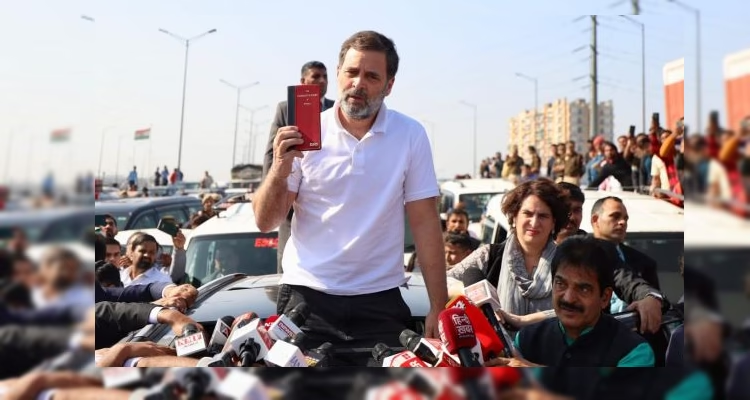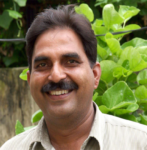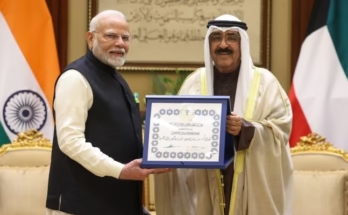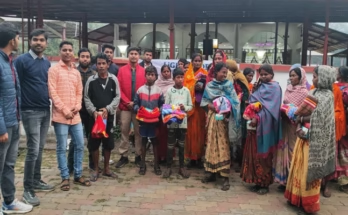
 by Sanjay Saxena
by Sanjay Saxena
Lucknow: The dispute over Jama Masjid and Harihar Temple in Sambhal district of Uttar Pradesh refuses to subside. The echoes of this conflict can be heard from the Supreme Court to the controversial statements of politicians and all the way to the political corridors. Leaders of all political parties, except the BJP, have taken a stand supporting Jama Masjid and the stone pelters. These leaders, who stand in support of those attacking the police with stones and firearms, are continuously targeting the Yogi government and the local administration. Politicians from all parties have turned Sambhal into their political playground. Whether it is Congress leader and Leader of Opposition in the Lok Sabha, Rahul Gandhi, or Samajwadi Party chief Akhilesh Yadav, many leaders either pretend to march to Sambhal or spread rumours to spoil the atmosphere. To control the worsening situation in Sambhal, the local administration has imposed a ban on the entry of outsiders into the district until December 10, but opposition leaders are more concerned with using the situation for their political gain than with maintaining peace in the region. The political scenario in Sambhal today looks quite similar to the one seen during the Ram Janmabhoomi movement in Ayodhya, the Mathura Krishna Janmabhoomi issue, and the Varanasi Gyanvapi mosque versus Kashi Vishwanath temple controversy. The Sambhal issue and its related violence have already resonated in the Lok Sabha.
Overall, leaders like Akhilesh Yadav, Rahul Gandhi, and Owaisi are trying to use the Sambhal controversy to boost their political fortunes. However, the sad part is that the same leaders, who are attacking the Modi-Yogi government over the Sambhal issue, remain silent about the ongoing violence against Hindus in Bangladesh. It seems that if these leaders speak out in favor of Hindus in Bangladesh, they fear losing their Muslim vote bank. However, West Bengal Chief Minister Mamata Banerjee has been outspoken about the violence against Hindus in Bangladesh. Mamata has also called on the Modi government to take strict action. Meanwhile, in protest against the violence against Hindus and the arrest of ISKCON-linked saint Chinmayananda Krishna Das, BJP leader Suvendu Adhikari led an agitation in Bengal on December 2. Activists, common people, and monks blocked trucks carrying goods at the India-Bangladesh border, disrupting trade with Bangladesh for nearly the entire day. The protesters demanded the unconditional release of Chinmayananda Krishna Das and stated that their protest would continue until the Bangladesh government takes action against the attacks on Hindus and their temples, and releases the saint.
It is astonishing that foreign agencies, which often create a ruckus over fabricated allegations of Muslim oppression in India, seem blind to the bloodshed against Hindus in Bangladesh. The Modi government has expressed concern about the violence against Hindus in Bangladesh and has asked the Bangladesh government to ensure the protection of minorities. External Affairs Minister S. Jaishankar stated in Parliament that the central government is taking the violence against Hindus and other minorities in Bangladesh very seriously, emphasizing that it is the responsibility of the Bangladesh government to protect minorities. India has also continuously urged the Bangladesh government to take action on attacks against Hindus and other minorities.
Interestingly, even though political leaders in India are avoiding taking a stand on the atrocities against Hindus in Bangladesh, Bangladesh’s former Prime Minister Sheikh Hasina has been vocal against the violence. The violence against Hindus in Bangladesh continues, and the ISKCON-linked saint Chinmayananda Krishna Das has been jailed on charges of inciting violence. This has angered Hindus in Bangladesh. Sheikh Hasina has accused Bangladesh’s interim government leader Mohammad Yunus of being responsible for the genocide against Hindus. In a virtual address at an Awami League event, Hasina claimed that Yunus is orchestrating the attacks on temples and churches, accusing him of being the mastermind behind these attacks.
Sheikh Hasina also mentioned that allegations against her of causing a massacre are false and that it is Yunus who is behind the orchestrated violence. She pointed out that Yunus, under the guise of student organizations, is in power and is inciting the killings of minorities. Tariq Rahman, the son of Bangladesh Nationalist Party (BNP) leader Begum Khaleda Zia, has also stated that if the killings continue, the government will not survive.
During Hasina’s tenure, Bangladesh-India relations were quite good, but after the interim government, led by Mohammad Yunus, took over, there has been a shift towards Pakistan. There have been attacks on the statue of Bangabandhu Mijibur Rahman, and his pictures have been removed from offices. Even holidays dedicated to the founders of Bangladesh have been canceled. Hindus are being attacked with the excuse that they were supporters of Sheikh Hasina’s government. Many prominent Hindu figures have had their homes and places of worship attacked.
Historically, Bangladesh had a Hindu population of over 40% until 1947, and Hindus lived in all 65 districts of the region. This land, now Bangladesh, was part of several Indian princely states, including Assam’s Ahoms, Meghalaya’s Jayantia, and Tripura’s Tripuri Hindu monarchies.
In conclusion, when it comes to the Jama Masjid or Harihar Temple issue, leaders of non-BJP parties have created a massive uproar. However, if we look deeper, it becomes clear that in the case of Sambhal, the 1968 Murdabad Gazette mentions that Harirhar Temple was built by Prithviraj Chauhan and later demolished by Mughal rulers. The Gazette claims that the Jama Masjid building resembles a Hindu temple. It suggests that the structure, now known as Babur’s Masjid, could have originally been a Vishnu temple. Despite this, when it comes to violence against Hindus, political leaders in India seem to wear a different lens. They focus on perceived injustice against Muslims but turn a blind eye to the violence being inflicted on Hindus both at home and abroad.



